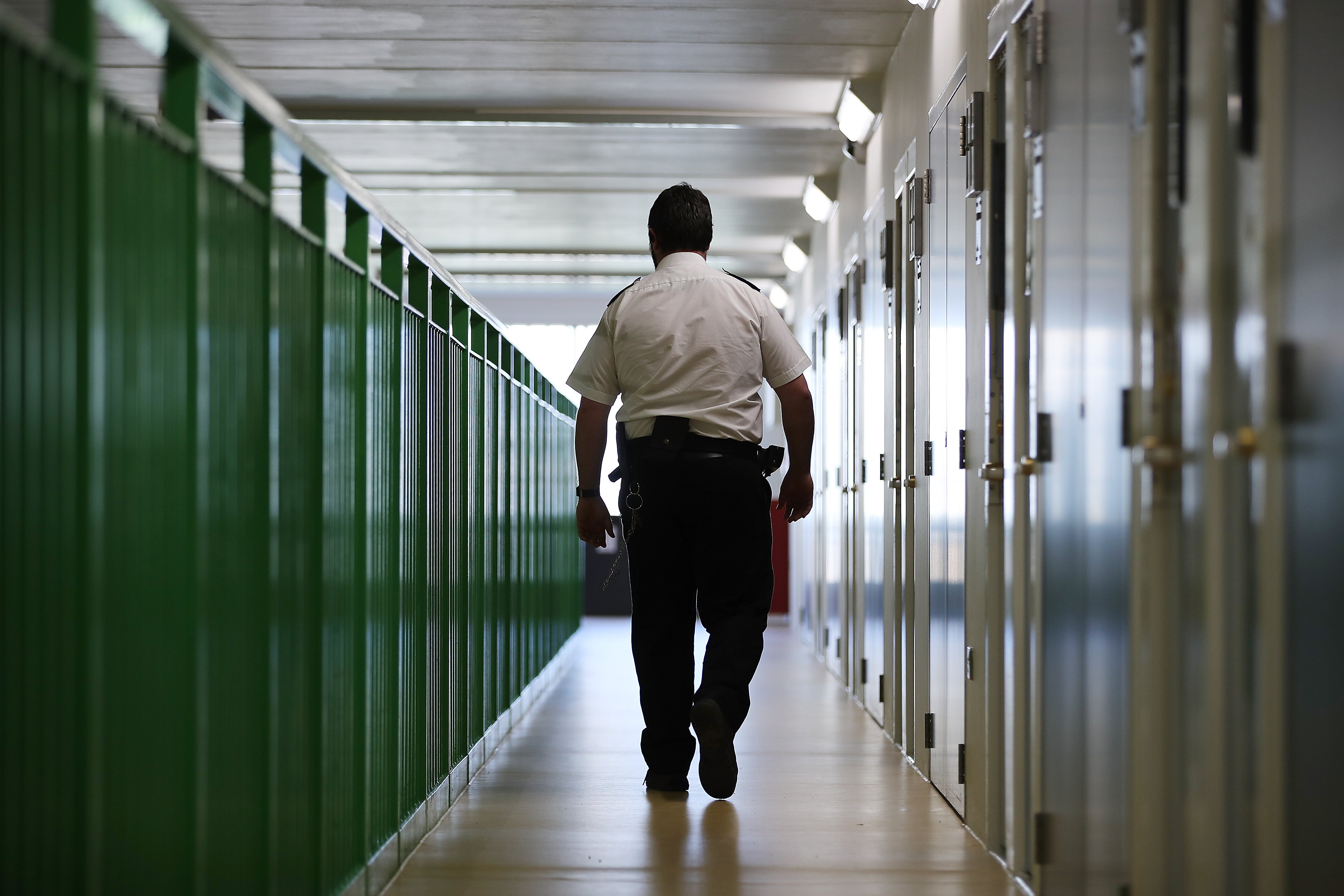The drugs crisis in prisons is the worst it has ever been, experts have warned, with the prevalence of illicit substances rendering jails “almost impossible to run positively”.
Ministers have been warned that an unacceptable level of criminality is rampaging unchecked in many prisons, as the most recent data shows annual drug seizures by prison officers returning to record highs of more than 21,000.
New analysis by The Independent highlights how the ongoing crisis first exploded during the austerity years, as the prison service was hollowed out by cuts and staff layoffs.
The warning comes as staffing levels remain on the brink at some prisons and as the government prepares for the largest overhaul of the system in decades to ease overcrowding and refocus the justice system towards rehabilitating offenders.
“We generally feel there is a bigger and more diverse and profitable drug market in prisons than there’s ever been,” said Mike Trace, chief executive of the Forward Trust, a charity delivering drug treatment in 20 prisons.
“Obviously we can’t itemise that in terms of GDP figures, but the feeling for most professionals on the wings is this is a bigger part of prison life than it’s ever been before.”
Warning that this “makes prisons almost impossible to run positively”, Mr Trace – who previously served as a government drugs tsar under Tony Blair – also expressed concern that an influx of new synthetic drugs are posing a risk to safety, with fatally potent synthetic opioids feared to be “in the mix”.
Mr Trace told The Independent: “A lot of the market in prisons now is liquids and powders that people receiving and taking them are not really sure what’s in them. That means the risk of overdose or adverse reaction is heightened because people aren’t in a good position to manage dose and potency.”
“That’s why you get the large number of blue-light ambulances calling,” he said. Warning that “blue lights are a normal part of prison life now”, Mr Trace added: “There are prisoners who need medical attention on a daily/weekly basis.”

His warnings were echoed in a major watchdog report published last month, in which the Independent Monitoring Board described drugs as a growing problem “endemic across the prison estate” – with “a seemingly unstoppable flow” into many jails.
The watchdog’s annual report said: “At some prisons the impact of drugs was inescapable: debt drove up violence and bullying, while prisoners frequently experienced medical emergencies, which added further disruption as staff resource was directed towards assisting them and providing hospital escorts.”
That is despite intensified efforts to crack down on the flourishing illicit market, as staff in the crumbling prison estate battle against increasingly adept drone deliveries and hard-to-detect substances.
Official data shows there were a total of 21,145 drug seizures in the year to March 2024 – a rise of 35 per cent on the previous year, and close to an all-time high of 21,575 hit four years prior.
Of the seizures made last year, more than 7,200 drug finds in the year to March 2024 were logged as “unknown” substances. Nearly 5,000 others were categorised as “psychoactive substances” – which can include the synthetic cannabinoid spice – and more than 3,000 as “other”.
The Independent previously revealed that new super-strength synthetic opioids now infiltrating the UK drugs market had already claimed lives behind bars, with two deaths in June 2022 at HMP Lewes caused by overdoses of isotonitazene, a substance 250 times stronger than heroin.
But experts warn that, in both prison seizures and post-mortem examinations, officials are still failing to test for these new opioids, which have been discovered in not just heroin but illicit vapes, diazepam and codeine pills. When nitazenes were discovered during a prison seizure in 2023, the government claimed the sample was deemed to be too dangerous for the private laboratory to handle.

The Independent’s analysis of official data underscored the rapid explosion in the crisis during the austerity years led by the former Tory government, when funding cuts saw experienced officers laid off and drug treatment avenues diminish.
There were an average of 3,813 annual drug seizures in prisons over the eight years to 2014, but this soared to a yearly average of 15,350 over the following decade. From 2014, confiscations skyrocketed from fewer than 4,500 to more than 21,000 just six years later.
Mr Trace said “massive austerity cuts” from 2012 onwards saw long-serving prison staff replaced with “relatively inexperienced and poorly trained officers” – resulting in the loss of “an awful lot of prison craft experience” and handing “much more freedom to prisoners to exploit laxer security to build up drug trade”.
Simultaneously, the number of addiction treatment programmes in prisons, such as drug-free wings, were slashed from 110 in 2013 to around 15 just six years later, according to Mr Trace. It coincided with the arrival of spice – which is easier to produce and circulate behind bars than cannabis – and “increased the incentives of drug dealing gangs to target prisons”.
Now, the arrival of drones – which Mr Trace describes as the “current front line in the arms race for dealing” – have taken the drugs trade to “another level”, with a single delivery capable of serving a prison for a month. Previously, piecemeal supplies came via family visits and corrupt officers which lasted only a matter of days.
HM chief inspector of prisons, Charlie Taylor, told The Independent the effects of drugs, often brought in on drones, “is the biggest challenge currently facing many of our prisons”.
He said: “Inspectors regularly smell drugs as they walk around the wings and random drug tests in some jails are regularly coming back more than 30 per cent positive. Where there are drugs, there is debt, which is one of the causes of increasing violence.
“It is simply not acceptable that these levels of criminality are going on, unchecked, in so many English and Welsh prisons.”

Experts frequently warn that drugs and related debts are a major driver of violence behind bars, with assaults on staff hitting a record high of more than 10,000 in the year to March.
Placing HMP Manchester into emergency measures last October, inspectors said “catastrophic” levels of drugs were “clearly undermining every aspect of prison life, particularly safety”, fuelling the highest rates of serious assaults of any jail in the country. HMP Winchester followed suit days later to become the ninth jail put in emergency measures in just two years, with inspectors also citing drugs and violence as serious issues.
A Ministry of Justice spokesperson said: “This government inherited a prison system in crisis – close to collapse, with drugs and violence rife.
“We take a zero-tolerance approach to drugs and are cracking down on illicit items using X-ray body scanners and drone-restricted fly zones – measures that are making a clear impact.”


